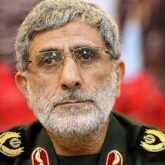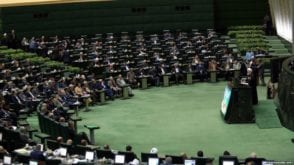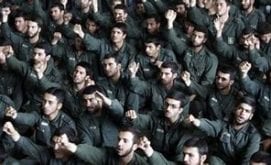RFL/RE – Iranian police have accused 12 women’s rights activists arrested earlier this week of “acting against national security” by planning and coordinating events ahead of the anniversary of the death of Mahsa Amini, who died while in police custody, sparking a year of nationwide unrest.

The police commander of Gilan Province and the Gilan Intelligence Department accused the activists of “communicating with the families of protesters killed during the demonstrations and “inciting them,” while also participating in “propaganda activities aimed at overthrowing” the country’s leadership.
The 12 activists were arrested separately on August 16 by the Islamic republic’s security and intelligence forces in the northern cities of Rasht, Fuman, Anzali, and Lahijan.
Among those detained were Matin Yazdani, Forough Sami’nia, Yasmin Hashdari, Jelve Javaheri, Zahra Dadras, Negin Rezaei, Shiva Shahsiah, and Vahehdeh Khoshsirat.
Azizollah Maleki, the police commander of Gilan Province, said the arrests were also linked to “activities related to the anniversary of protests.”
Maleki referred to the detainees as “12 men and women” and said they were arrested “on charges of gathering and colluding to commit a crime against the country’s internal security and propaganda activities against the system in favor of opposing groups.”
He did not say how long the 12 detainees would remain in custody.
Following the arrests, Mansoureh Shojaee, a women’s rights activist herself, told RFE/RL’s Radio Farda that the detentions appear to be part of a broader strategy by the Islamic leadership to manage the first anniversary of Amini’s death on September 16.
She emphasized that many of those detained, including Javaheri, Sami’nia, and Yazdani, have been champions of the women’s rights movement for more than two decades.
Iranian officials have repeatedly expressed concerns in recent weeks about the possibility of protests escalating as the anniversary approaches.
In Tehran and other Iranian cities, several civil activists and demonstrators with a history of protesting have also been arrested or summoned in recent days to meet with judicial authorities.
The synchronicity of the anniversary of the protests and the reopening of universities in September, where the demonstrations have gained strength, have led some officials, including in Tehran’s City Hall, to announce plans to shift to online teaching until October 1.
Iranian security services, meanwhile, have initiated a series of “telephone summons” targeting students after Mostafa Rastegari, Supreme Leader Ayatollah Ali Khamenei’s top representative for higher education, warned of the potential for fresh public protests originating from academic institutions and hinted that measures to deter protests were needed.
At least 500 people have been killed since protests broke out following the death of Amini, an Iranian Kurdish woman who was arrested while visiting Tehran for allegedly violating the country’s hijab law.
The protests began as a rebuke against the brutal enforcement of the mandatory head scarf legislation, but soon snowballed into one of the most sustained demonstrations against Iran’s theocracy since the 1979 Islamic Revolution.
Officials have blamed the West for inciting the protests and vowed to crack down even harder on the demonstrations.
Several thousand people have been arrested, including many protesters, as well as journalists, lawyers, activists, digital rights defenders, and others.
 Shabtabnews In this dark night, I have lost my way – Arise from a corner, oh you the star of guidance.
Shabtabnews In this dark night, I have lost my way – Arise from a corner, oh you the star of guidance.



